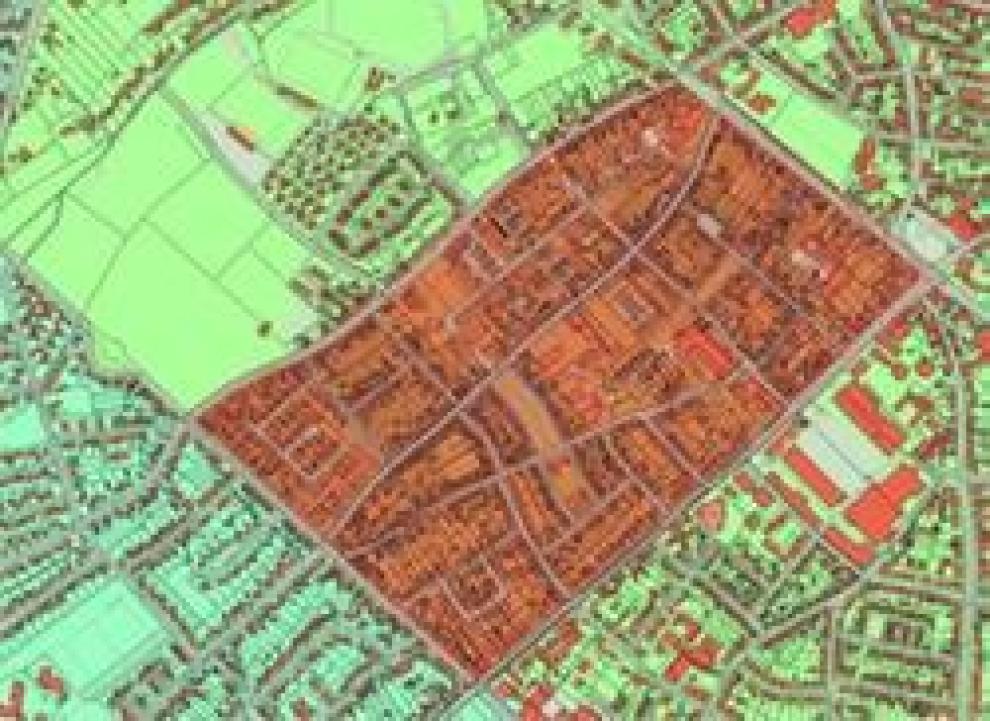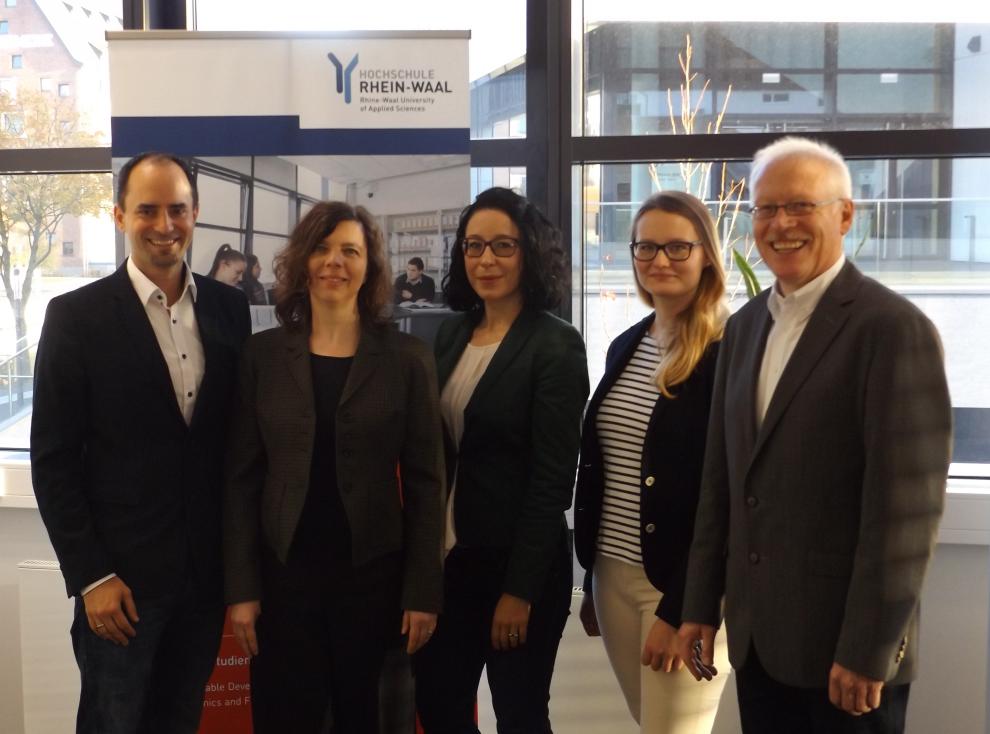Neighborhood development in Kleve:
a research project in collaboration with the city of Kleve


At Rhine-Waal University of Applied Sciences, Faculty of Society and Economics, a project group led by Prof. Dr. Ingrid Jungwirth is currently conducting a research project in cooperation with the city of Kleve on the topic of neighborhood development. The aim of the empirical project is to gain a comprehensive understanding of the living situation of residents in a selected neighborhood. These results will then serve as a basis for uncovering possible fields of action for future urban planning and neighborhood development.
The neighborhood designated by the city of Kleve for the purpose of this pilot project has undergone major transfomations in the recent years. It is characterized by a great heterogeneity; people of different origin and nationality live in the neighborhood. However, there are also problems like poverty. The pilot neighbourhood the project deals with is bordered by the following streets:
- Hoffmannallee
- Königsallee
- Merowinger street
- Lindenallee
For systematically assessing the satisfaction of residents with their living situation and in terms of their current needs, the project was designed as a two-stage approach.
The overarching research question is how the people in the neighborhood live and work together. In the first project phase (October 2017 - March 2018), qualitative, semi-structured interviews with residents and key stakeholders directly tied to the neighbourhood were conducted in the form of in depth one-to-one interviews and focus group discussions. The interviews addresed topics relating to the overall living conditions in the neighborhood, work and leisure activities, volunteering activitees, social relationships and available infrastructure. In addition, a systematical assessement of the social and economic infrastructure of the neighburhood was provided.
Building on the findings from the exploratory analysis, a survey is currently being conducted in the form of a household survey in the neighborhood in a second project phase (October 2018 - April 2019). In this way it can be examined to what extent the attitudes and orientations of residents analyzed in the qualitative study are representative for the neighbourhood, respectively to what extent the analyzed attitudes are being shared by other residents. In addition, more comprehensive information on the socio-economic situation of local residents can be gathered. The objective is a more detailed socio-economic profile of local residents at the neighbourhood level, taking into account income groups, migration background, employment data and labor market integration data. The aim is to gain more insight into how the social situation of the residents affects housing conditions and neighborhood relations.
The concept was developed in the project group around Prof. Dr. Jungwirth. Contact person and significantly involved in the project is Claudia-Livia Balan.
Quicklinks
Downloads
Project Management
Prof. Dr. Ingrid Jungwirth
Professorin für Sozialwissenschaften mit dem Schwerpunkt Diversität und Inklusion
Project Staff
Claudia-Livia Balan, M.A.
Wissenschaftliche Mitarbeiterin im Studiengang "Gender and Diversity, B.A."
Jessica Römer
Studentische Mitarbeiterin
Projekt Team Members
Prof. Dr. Thomas Pitz
Professor für Wirtschaftswissenschaften mit dem Schwerpunkt Spieltheorie
Prof. Dr. Jakob Lempp
Professor für Politologie mit dem Schwerpunkt Internationale Beziehungen
Dipl.-Volksw. Wolf Gardian
Wissenschaftlicher Mitarbeiter für Volkswirtschaftslehre Koordination Laborlandschaft
Running Time
Oktober 2017 bis März 2018
Commissioned by
Stadt Kleve
